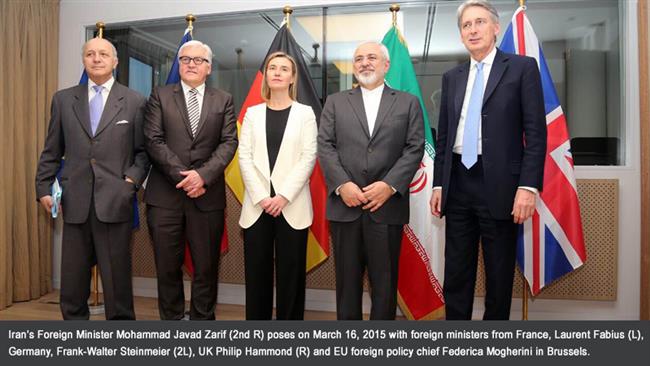 A senior Saudi royal family member's comments criticizing a potential deal on Iran's nuclear program is a distortion of facts and an impediment to reaching a diplomatic solution, a Middle East expert and former Iranian diplomat in Lebanon Saed Hadi Afkahi said.
A senior Saudi royal family member's comments criticizing a potential deal on Iran's nuclear program is a distortion of facts and an impediment to reaching a diplomatic solution, a Middle East expert and former Iranian diplomat in Lebanon Saed Hadi Afkahi said.MOSCOW (Sputnik)�� Iran and a group of�six negotiating powers are facing a political framework deadline at�the end of�March, in�hopes that by�July they will clinch a long-term deal ensuring Iran pursues a peaceful nuclear program in�exchange for�sanctions relief.
On Monday, Saudi Prince Turki Faisal told BBC that "whatever comes out�of these talks, we will want the same."
In an interview with�Sputnik Radio, Afkahi said the prince's remarks are intended to�strike fear into�the international community.
"These words can be interpreted as�a kind of�threat provoking a conflict� Mr. Faisal's statements sow the seeds of�misconceptions about�Iran in�its audience and the world community," the former Iranian diplomat told Sputnik Radio.
Afkahi asserted that the International Atomic Energy Agency (IAEA) maintained strict oversight of�Tehran's nuclear program, which he said was exclusively peaceful in�nature.
Researcher at�the Russian Academy of�Sciences Senior Center for�the Study of�the Middle East Institute of�Oriental Studies Elena Dunaeva, believes the two Islamic centerpieces are positioning for�regional dominance.
"This competition is reflected in�politics, ideology and military affairs. Of course, Saudis do not want to�fall behind�Iranians in�such a key issue as�nuclear technology," Dunaeva said in�an interview with�Sputnik.
Afkahi said two of�IAEA's last leaders � current Director General Yukiya Amano and his predecessor Mohamed ElBaradei � had asserted in�the past�that Iran's nuclear program was not aimed at�developing nuclear weapons.
Concern over�a potential deal between�P5+1 and Iran spans the entire Middle East and may be influenced by�outside forces, Gulf affairs expert Wafiq Ibrahim said.
"Establishing a nuclear plant in�the Gulf, which it does not need, is an American plan just to�provoke the Gulf countries. It is strange that Iran's nuclear program is peaceful, yet it infuriates the Gulf," Ibrahim told Sputnik Arabic.
In spite of�progress noted by�all sides in�the negotiating process with�Iran � Russia, the United States, France, China, the United Kingdom and Germany � Washington extended its sanctions against�Tehran last week.
By Sputnik News










